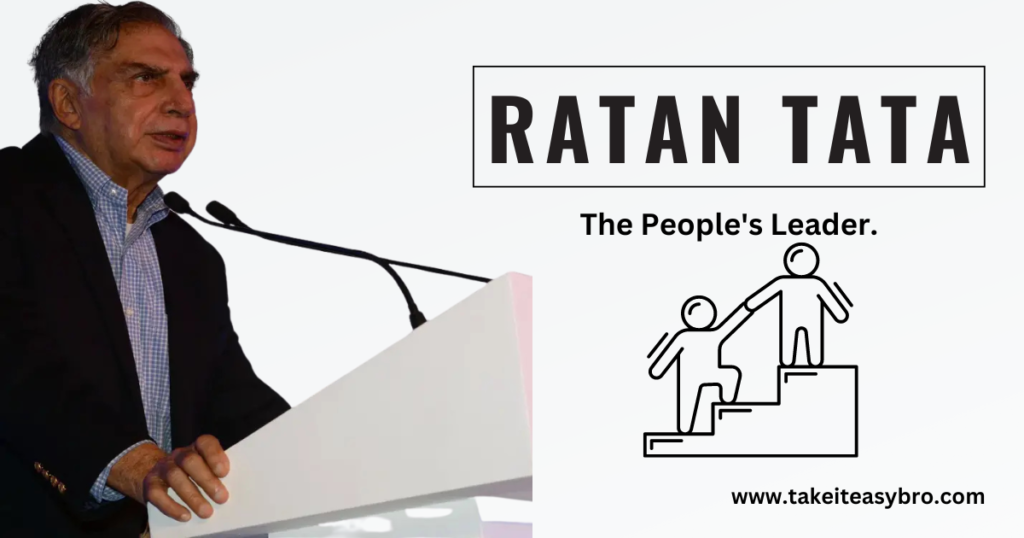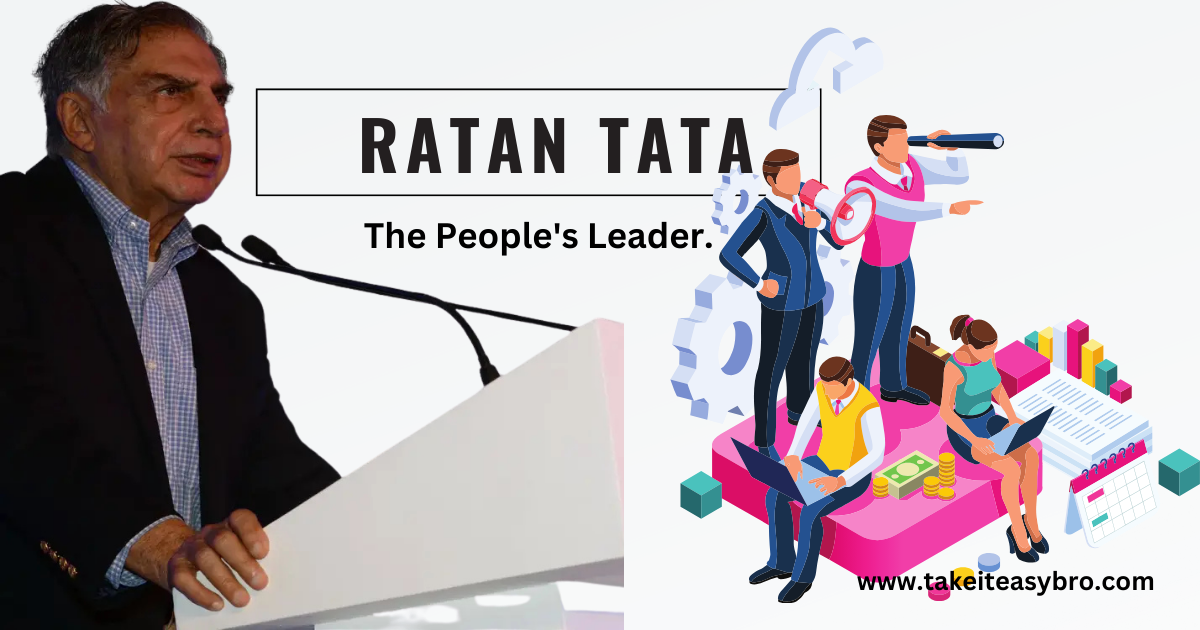We reflect on the life of Mr. Ratan Tata, the former Chairman of Tata Sons, who sadly passed away on October 9, 2024. Known for his visionary leadership and unwavering ethical values, Ratan Tata was a beacon of inspiration for many around the world. His commitment to social responsibility not only transformed the Tata Group but also made a lasting impact on society at large.
In celebrating his extraordinary life and legacy, we can reflect on six valuable lessons he imparted. These lessons remind us of the importance of integrity, empathy, and the drive to make a difference in the lives of others. Ratan Tata’s influence will continue to inspire future generations, and his teachings will always resonate with those who strive to lead with purpose and compassion.

Table of Contents
Celebrating the Life and Impact of Ratan Tata
1. Be Resilient: 2008 Mumbai Attacks
During the tragic 26/11 Mumbai attacks, the Taj Mahal Palace Hotel became a primary target. Built by Ratan Tata’s great-grandfather, Jamsetji Tata, as a symbol of Indian pride during British rule, the hotel held great significance for both the Tata family and the nation.
The siege lasted 60 hours as terrorists from Lashkar-e-Taiba clashed with Indian commandos and police. Amid the chaos, the hotel staff showed remarkable bravery. General Manager Karambir Kang, despite losing his wife and children during the attack, continued helping guests escape, exemplifying true sacrifice.
Ratan Tata’s Response:
In response, Ratan Tata, then chairman of Tata Group, stepped up as a compassionate leader. He provided immediate support to victims, families, and staff, offering financial, medical, and psychological assistance. The Tata Group also set up long-term funds to help survivors and the families of those who died.
Within a year, the Taj Hotel was rebuilt, preserving its historic charm as a symbol of resilience. Ratan Tata’s leadership during the crisis demonstrated his commitment to his employees and the city of Mumbai, cementing his legacy of compassion and responsibility. His swift action and dedication to rebuilding the Taj became a powerful example of leadership in adversity.
2. Take bold decisions : Acquisition of JLR
A powerful example of Ratan Tata’s bold decision-making was when he acquired Jaguar Land Rover (JLR) in 2008. Many experts, and even some within Tata Group, were skeptical about the move. Buying the luxury British car brands from Ford for $2.3 billion seemed risky, especially since JLR was struggling financially at the time.
Tata Motors, known for its small cars, wasn’t seen as a natural fit to revive such premium brands. But Ratan Tata recognized the opportunity in JLR’s potential and saw the long-term value it could bring to Tata Motors.
His gamble paid off. Under his leadership, JLR not only recovered but thrived, becoming a significant part of Tata Motors’ success and boosting the company’s global presence. This bold move cemented Ratan Tata’s legacy as a visionary leader who wasn’t afraid to take risks when it mattered.
3. Inspire Others : Impact on Sudha Murti
Sudha Murty is the Founder-Chairperson of the Infosys Foundation, and Ratan Tata has significantly influenced her both personally and professionally.
She often emphasizes the importance of ethics in business, a value she shares with Ratan Tata. His integrity and transparency have inspired her leadership style at the Infosys Foundation, shaping her commitment to ethical practices.
Even though they work in different sectors, Ratan Tata’s experience has provided valuable mentorship to Sudha Murty. His insights into leadership and strategy have guided her as she built her career and philanthropic efforts.
Their shared values of philanthropy, ethics, and empowerment reflect Ratan Tata’s positive impact on Sudha Murty. His influence has strengthened her dedication to making a difference in society, showcasing how leaders can inspire one another toward a better India.
4. Adapt to change : New Technology
Ratan Tata saw how important information technology was for changing how businesses operate. Under his guidance, Tata Consultancy Services (TCS) grew to be one of the largest IT service companies in the world. He encouraged all Tata companies to use digital solutions and build better IT systems, which helped improve efficiency and connect with customers more effectively.
Ratan also believed strongly in research and development (R&D) as a way to encourage innovation. He urged Tata companies to invest in R&D to create new and exciting products. This focus on innovation allowed the Tata Group to stay ahead of its competitors and quickly adapt to changes in the market.
One of the most notable projects during his time was the Tata Nano, launched in 2008. It aimed to create an affordable car for everyday people. The Nano was designed with innovative engineering, highlighting Tata’s commitment to using technology for the greater good, specifically by providing safe and low-cost transportation in India.
5. The Servant Leadership
Ratan Tata is a great example of servant leadership, which means putting others first and meeting their needs. He cares deeply about his employees, believing that a happy and satisfied workforce is key to the organization’s success. This commitment is clear in the many benefits and support systems the Tata Group provides.
Under his guidance, the Tata Group has focused heavily on giving back to the community. Ratan Tata has initiated various programs that promote education, health, and community development, showing his dedication to making a positive impact on society.
Additionally, he has served as a mentor to many people, sharing his knowledge and experience to help develop future leaders. This support reflects the essence of servant leadership, where lifting others up is a priority.
6. Build a Legacy Beyond Business
Ratan Tata’s legacy combines successful business achievements with a deep commitment to helping society. By prioritizing philanthropy, education, healthcare, and sustainability, he inspires others to make a positive impact. His influence extends beyond profits, showing that real leadership is about improving people’s lives.
His leadership is grounded in ethics and integrity, setting a high standard for responsible business practices. This has encouraged future leaders to value ethical conduct in their work.
Ratan Tata also emphasizes sustainable practices and caring for the environment. His focus on green technologies and renewable energy highlights his dedication to protecting the planet for future generations.
Conclusion:
As we remember Ratan Tata, we honor a life filled with purpose, compassion, and unwavering dedication to making the world a better place. His visionary leadership and strong ethical values not only transformed the Tata Group but also enriched countless lives. The lessons he shared, from resilience in the face of adversity to the importance of bold decision-making and servant leadership, continue to inspire us all.
Ratan Tata showed us that true leadership goes beyond business success; it’s about uplifting others, contributing to society, and leaving a positive legacy. As we reflect on his remarkable journey, let us carry forward his spirit of innovation, integrity, and commitment to social responsibility. Ratan Tata may have left this world, but his influence will forever guide and inspire future generations to lead with heart and purpose.
Why is Ratan Tata an inspiration?
Ratan Tata stands as a profound inspiration for many due to his remarkable leadership qualities and unwavering commitment to social responsibility. His ability to blend business acumen with compassion has left a lasting impact on society and the corporate world.

